This article was co-authored by Ritu Thakur, MA. Ritu Thakur is a healthcare consultant in Delhi, India, with over 10 years of experience in Ayurveda, Naturopathy, Yoga, and Holistic Care. She received her Bachelor Degree in Medicine (BAMS) in 2009 from BU University, Bhopal followed by her Master's in Health Care in 2011 from Apollo Institute of Health Care Management, Hyderabad.
There are 12 references cited in this article, which can be found at the bottom of the page.
This article has been viewed 316,458 times.
Bruises occur when your body receives an impact that damages the capillaries underneath the skin.[1] If you get hurt, bruising is normal. If bruising occurs without getting hurt, it is considered excessive and you should seek medical attention. Most bruises are minor, though they can be painful and often look worse than they are. There are ways you can prevent bruises by taking supplements, changing your diet, and assessing your overall health.
Steps
Using Supplements to Minimize Bruises
-
1Try a bromelain supplement. Bromelain, a supplement derived from pineapple stems, may help reduce bruising and swelling by breaking down blood proteins. You can also take it after bruising to try to speed up the healing process.[2]
- Try one 500-mg pill or two 250-mg pill supplements each day.
- Talk to your doctor before trying this supplement.
-
2Take arnica. Arnica montana is a natural remedy for bruising that is used to reduce swelling and inflammation.[3] You can take supplements to minimize bruising. Talk to your doctor before taking arnica.[4]
- If you have a bruise, you can apply arnica ointment or gel to it, which has been proven effective to treat bruising. You can purchase it at the drugstore. Apply it to the bruise daily to reduce the bruise and inflammation of the skin.
- You may also try applying aloe, witch hazel, calendula, or turmeric root to treat your bruises.[5]
Advertisement -
3Take supplements to help with circulatory health. Adding certain supplements to your diet may help reduce your risk of bruising. Taking vitamin C, hesperidin, or rutin may help. Try 400 mg of each supplement. Make sure to talk to your doctor before starting any supplements.[6]
- You can also eat more foods containing vitamin C and flavonoids. Vitamin C is found in citrus fruits, greens like spinach, strawberries, tomatoes, peppers, and broccoli. You can get flavonoids from carrots and apricots.
-
4Avoid blood thinning supplements. If you are bruising easily, you may want to limit some of your supplements. Vitamin E, ginseng, gingko biloba, ginger, and garlic are all blood thinners and can increase your chance of bruising. Limit how much you take these supplements.[7]
- If you are going to have surgery, stop these supplements a few weeks before the procedure.
Making Lifestyle Changes
-
1Reduce your alcohol intake. Alcohol can thin the blood and cause you to bruise more easily. To help prevent bruises, limit how much alcohol you drink. If you are going to have a procedure that may cause bruising, don’t drink for a few days before it.[8]
-
2Incorporate foods containing bioflavonoids into your diet. Bioflavonoids help strengthen your blood vessels and connective tissue. Strong capillaries help reduce the risk of bruises. Eat more foods like dark leafy greens, grapes, dark berries, onions, and garlic.
-
3Eat more fruits and vegetables. Increasing the amount of fruits and vegetables in your diet will provide your body with the nutrients it needs to help prevent bruising, such as vitamin C and vitamin K.
- Vitamin C is found in citrus fruit, greens like spinach, strawberries, tomatoes, peppers, and broccoli. Vitamin K can be found in green leafy vegetables, brussel sprouts, cabbage, broccoli, and cucumbers.
-
4Wear protective gear when doing physical activities. Wearing protection can help lower your risk of bruising. You can get bruised from impacts, falls, or other obstacles when playing sports, being outdoors, or even working out.
- Wear helmets, sports padding, or shin guards. You can also try wearing long pants and sleeves to help.
- You should also wear protective clothing and sunscreen if you are going to be out in the sun for extended periods. sun damaged skin is more likely to bruise.
Looking for Underlying Medical Conditions
-
1Talk to your doctor. If you are worried that you have an underlying disorder that causes you to bruise easily, talk to your doctor. They can run tests to see if there is any condition that may cause you to bruise due to slight bumps or very minor injuries.
- Let your doctor know of any other symptoms that you may be symptoms of larger disorders.[9]
-
2Ask your doctor if you have a platelet disorder. Platelet disorders, such as those that underlie diseases like leukemia or AIDS, can cause increased bruising. If you have too few platelets, you may suffer from increased bleeding or dark red or purple bruises in addition to more frequent bruises.[10]
- See your doctor if you are concerned about increased bruising.
-
3Stop taking blood thinners if possible. Blood thinners can cause increased bruising. If you are taking blood thinners, such as warfarin or heparin, ask your doctor to do a PT test to see if you can reduce the dose or eliminate taking blood thinners. If you cannot be taken off blood thinners, be more cautious in situations that may cause you to bruise - the medicine will make you more prone to bruising.[11]
- If you have recently taken blood thinners but no longer are, you may still be at risk of increased bruising. The effects will wear off after a short time.
-
4Check for signs of a blood clotting disorder. Blood clotting disorders, such as vitamin K deficiency or hemophilia, can cause an increased rate of bruising when the blood takes longer to clot under your skin. You may have a clotting disorder if minor injuries cause large, deep bruises. You will also have other symptoms, such as nosebleeds, painful or tight joints, blood in your urine or feces, or excessive bleeding.
- Hemophilia is an inherited disorder, so have yourself checked if anyone in your family has it.
- See your doctor if you think you may have a clotting disorder.[12] You may be able to rectify the disorder through diet changes, exercise, and prescription blood thinners.
Treating a Possible Bruise
-
1Elevate and rest the injured area. Keep the area that was injured elevated. Rest it on a stool or armrest, or remain sitting up. This will help control the blood flow to the area and may prevent bruising. If you can, rest whatever part of your body you hurt.[13]
-
2Apply ice. Ice can help slow the blood flow to the injured area, helping a bruise to develop slower or prevent one from forming. You can use an ice pack, wrap ice in a towel, or use a frozen bag of vegetables wrapped in cloth.[14]
- Leave the ice pack on the area for 10 minutes. Then, wait at least 20 minutes before applying more ice.
- Never place ice directly onto the skin because it could damage the skin.
-
3Take over-the-counter pain relievers. If an injured area is extremely painful, mild pain relievers can help. Acetaminophen (Tylenol) and ibuprofen (Advil) can help. Ibuprofen also helps reduce swelling.[15]
- Avoid taking NSAIDs (Aleve) and aspirin for pain relief since they cause blood thinning and can cause bruising.
-
4See your doctor if you bruise easily. In addition, if the bruise is extremely painful and/or doesn’t begin to heal after a few days, seek medical attention.
- You should also see a doctor if bruises appear and you’re not sure where they’re coming from.[16]
Expert Q&A
-
QuestionWhat foods or supplements can I have to help heal my bruises?
 Ritu Thakur, MARitu Thakur is a healthcare consultant in Delhi, India, with over 10 years of experience in Ayurveda, Naturopathy, Yoga, and Holistic Care. She received her Bachelor Degree in Medicine (BAMS) in 2009 from BU University, Bhopal followed by her Master's in Health Care in 2011 from Apollo Institute of Health Care Management, Hyderabad.
Ritu Thakur, MARitu Thakur is a healthcare consultant in Delhi, India, with over 10 years of experience in Ayurveda, Naturopathy, Yoga, and Holistic Care. She received her Bachelor Degree in Medicine (BAMS) in 2009 from BU University, Bhopal followed by her Master's in Health Care in 2011 from Apollo Institute of Health Care Management, Hyderabad.
Natural Health Care Professional You can apply arnica, aloe gel, or witch hazel directly to your bruises to help get rid of them.
You can apply arnica, aloe gel, or witch hazel directly to your bruises to help get rid of them. -
QuestionHow do I prevent bruising when getting cataract surgery?
 Jurdy Dugdale, RNJurdy Dugdale is a Registered Nurse in Florida. She received her Nursing License from the Florida Board of Nursing in 1989.
Jurdy Dugdale, RNJurdy Dugdale is a Registered Nurse in Florida. She received her Nursing License from the Florida Board of Nursing in 1989.
Medical Review Board An experienced surgeon would not cause bruising of the eye. Ensure your doctor has the necessary medical licenses and experience to perform this surgery.
An experienced surgeon would not cause bruising of the eye. Ensure your doctor has the necessary medical licenses and experience to perform this surgery.
References
- ↑ http://www.mayoclinic.org/healthy-lifestyle/healthy-aging/in-depth/easy-bruising/art-20045762?pg=2
- ↑ https://www.ncbi.nlm.nih.gov/pmc/articles/PMC4015046/
- ↑ Ritu Thakur, MA. Natural Health Care Professional. Expert Interview. 25 July 2019.
- ↑ https://www.ncbi.nlm.nih.gov/pubmed/20412090
- ↑ Ritu Thakur, MA. Natural Health Care Professional. Expert Interview. 25 July 2019.
- ↑ http://www.uofmhealth.org/health-library/hn-1172006
- ↑ https://www.ncbi.nlm.nih.gov/pmc/articles/PMC3760599/
- ↑ https://delphihealthgroup.com/alcohol/easy-bruising/
- ↑ http://www.merckmanuals.com/home/blood-disorders/blood-clotting-process/bruising-and-bleeding
- ↑ http://www.healthline.com/health/thrombocytopenia
- ↑ http://www.merckmanuals.com/home/blood-disorders/blood-clotting-process/bruising-and-bleeding
- ↑ http://www.healthline.com/health/hemophilia#overview1
- ↑ http://www.mayoclinic.org/first-aid/first-aid-bruise/basics/art-20056663
- ↑ https://www.ncbi.nlm.nih.gov/pubmed/25856035
- ↑ http://www.mayoclinic.org/first-aid/first-aid-bruise/basics/art-20056663
- ↑ http://www.mayoclinic.org/first-aid/first-aid-bruise/basics/art-20056663
About This Article
To prevent bruising, try taking a daily supplement like bromelain or arnica, which can help reduce the swelling and inflammation that causes bruising. You can also reduce bruising with daily supplements that help with circulatory health, like vitamin C, hesperidon, or rutin. If you bruise easily, avoid supplements that thin your blood, like vitamin E, gingko biloba, ginger, and garlic. Additionally, when you play sports, wear helmets, sports padding, and shin guards to protect your skin from impacts that cause bruising. For more information from our Medical co-author, like how to treat a bruise, keep reading!
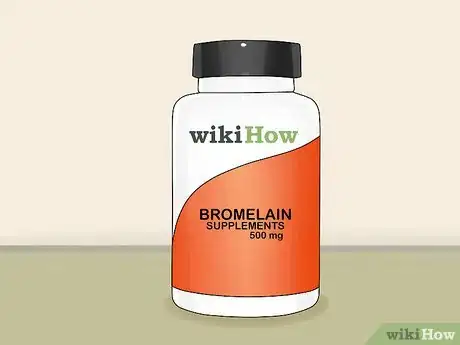


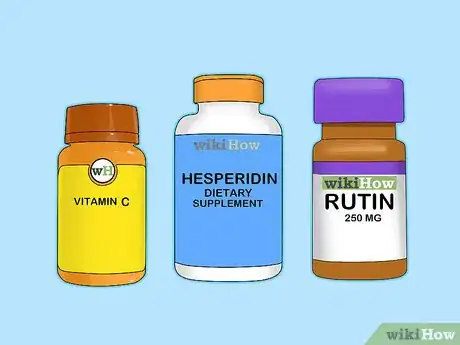

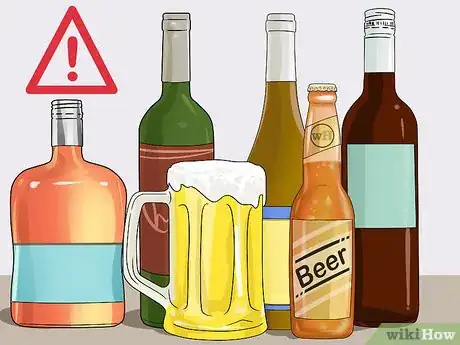


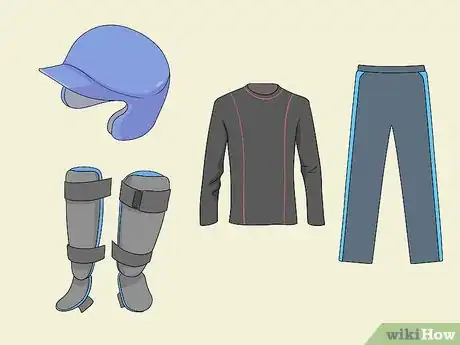
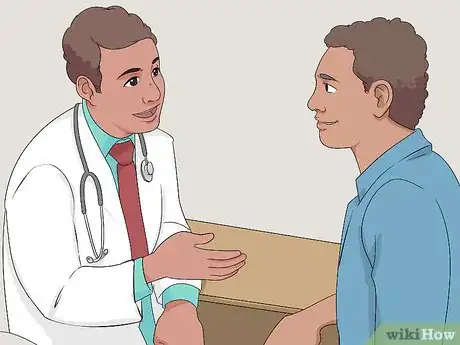
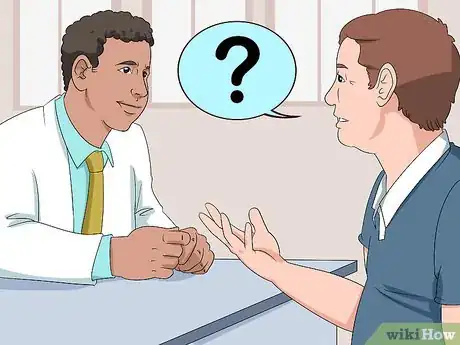
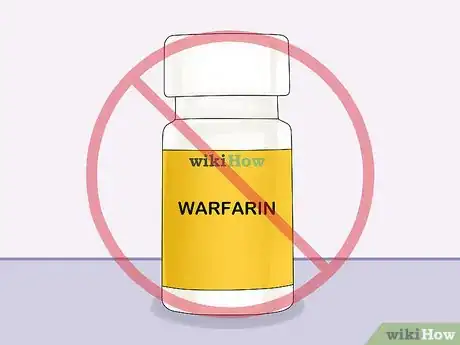
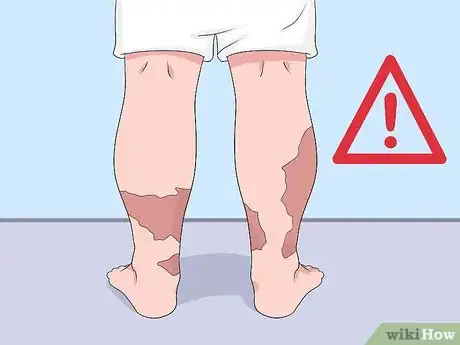
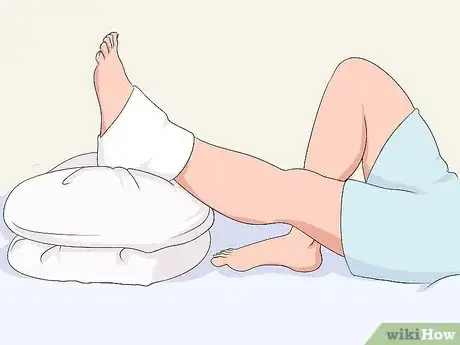
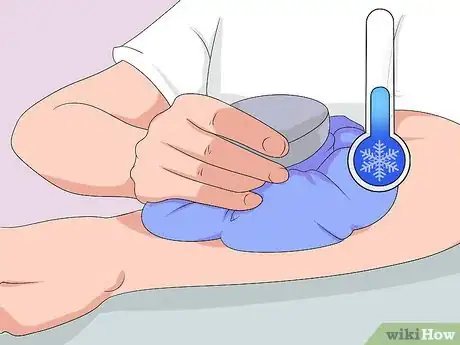
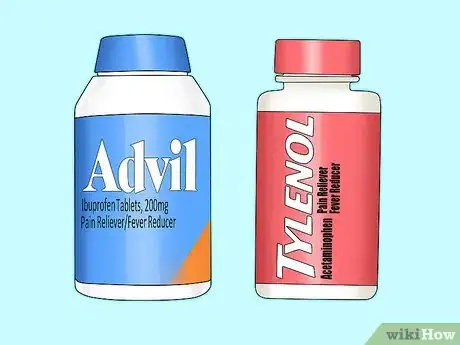
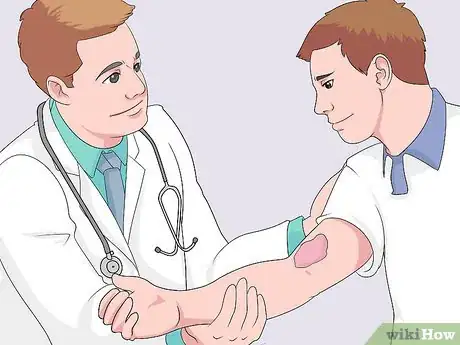
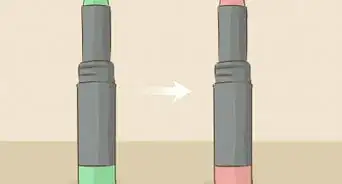



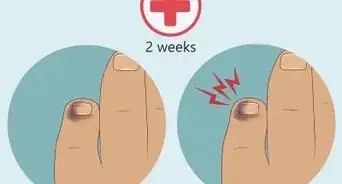

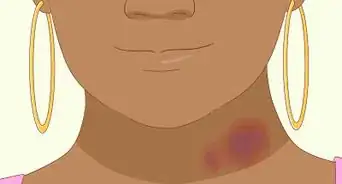





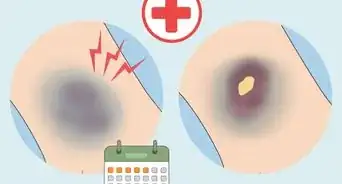
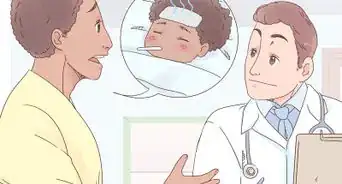















































Medical Disclaimer
The content of this article is not intended to be a substitute for professional medical advice, examination, diagnosis, or treatment. You should always contact your doctor or other qualified healthcare professional before starting, changing, or stopping any kind of health treatment.
Read More...